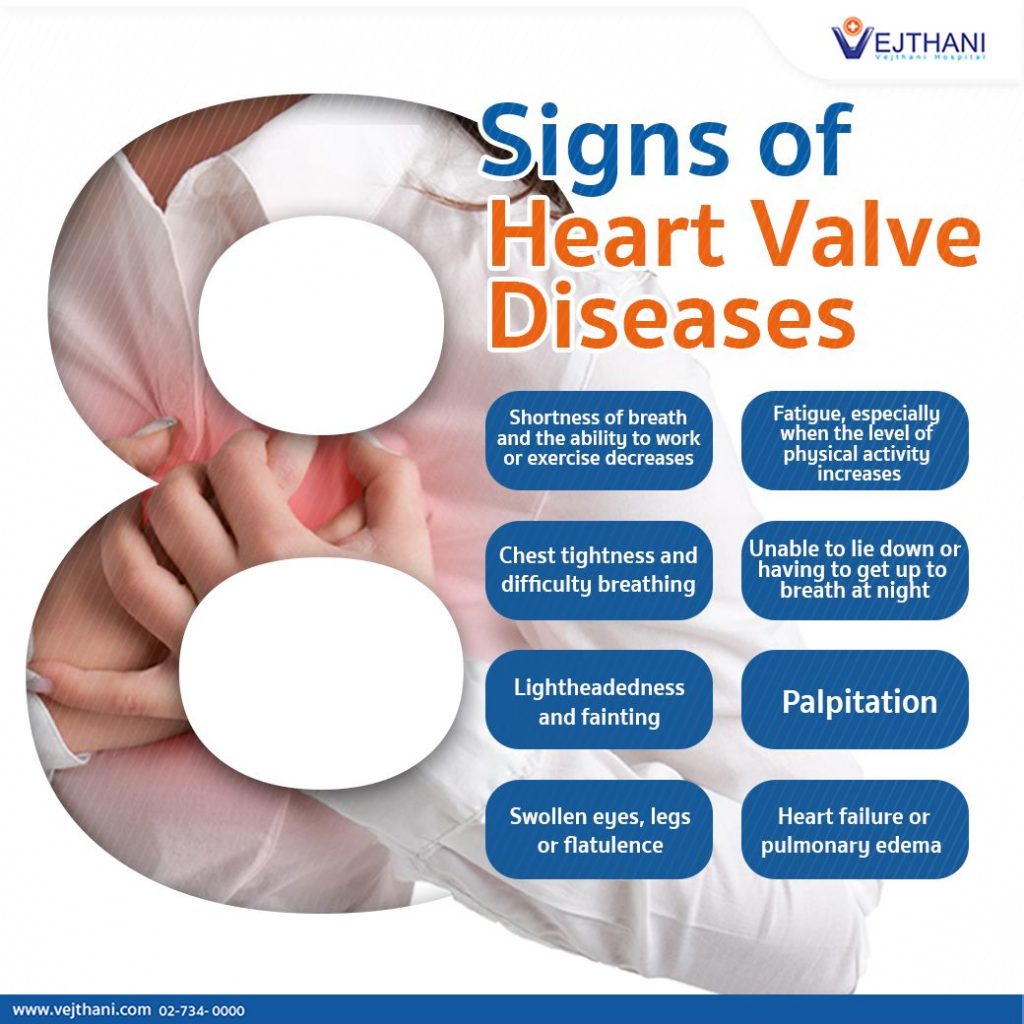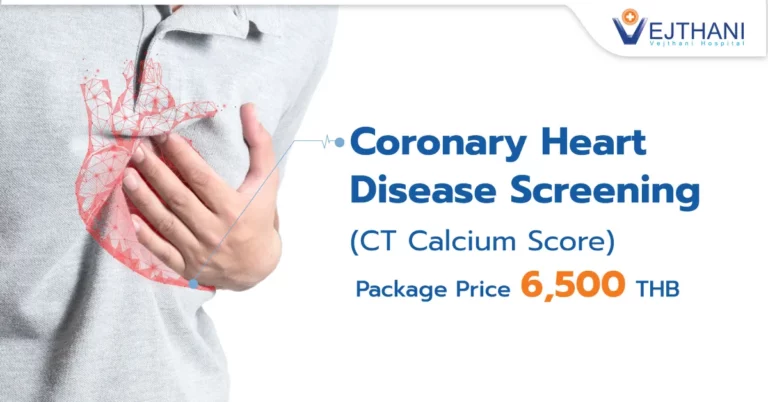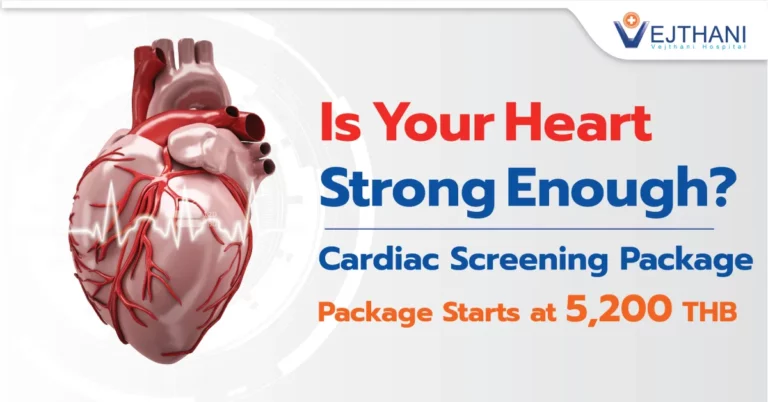

Heart valves are responsible for being the barriers between heart chambers. Their functions are to control blood flow in the right direction and prevent it from flowing backward. Abnormalities in the valves may have an effect on blood circulations and lead to death. Heart valve diseases can be categorized into 2 types, valvular stenosis and valvular regurgitation.
Valvular regurgitation is a condition when the valve does not completely close its flaps, it may be leaked or torn and that result in reverse blood flow. This reduces the effectiveness of blood circulations in the heart and causes the heart to work harder.
Valvular stenosis is when the valve does not open all the way, restricting blood flowing out of the chamber, causes buildup of blood to go backward to the chamber.
Symptoms of heart valve stenosis and regurgitation
- Shortness of breath and the ability to work or exercise decreases
- Fatigue and weakness, especially when the level of physical activity increases (Dyspnea especially on exertion)
- Chest tightness and difficulty breathing (Chest pain/discomfort)
- Unable to lie down (Orthopnea) or having to get up to breath at night
- Lightheadedness or fainting (Syncope)
- Palpitation
- Swollen eyes, legs or flatulence
- Heart failure or pulmonary edema
For more information, please contact
Cardiac Center on 5th floor, Vejthani Hospital or call our Hotline at +66(0)85-223-8888
- Readers Rating
- Rated 5 stars
5 / 5 ( Reviewers) - Spectacular
- Your Rating






























